The elation and heartbreak of being a non-Olympian in an Olympic family
Cheering takes on a different meaning for an Olympian's older sister
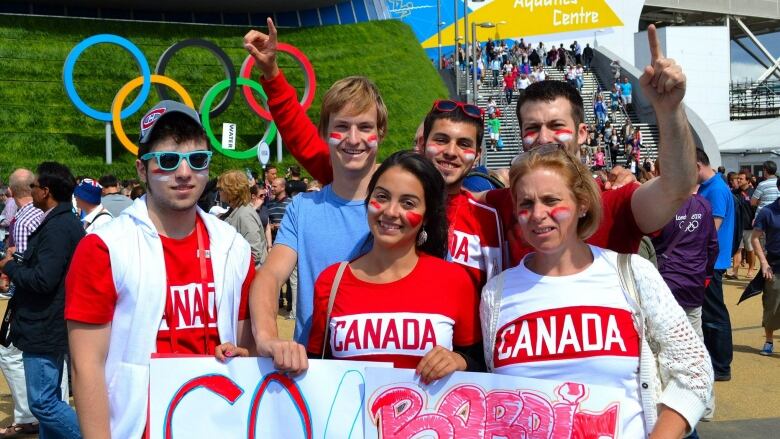
At the 2012 Olympic swimming trials, my little sister Barb was favoured to win the 400-metrefreestyle.
Not only did she lose her race, she didn't qualify.The pressure to qualify for the next racewas suffocating her.
As we satat a cafe on Greene Avenuein Westmount,I was beingobnoxiously pleasant in a vainattempt tobuoy her spirits,even though my heart was broken too.
"You need to eat this chocolate baba," I said.
"I can't," she said.
It wasn't that she couldn't.But for years as anathlete in training, with the Olympic rings in her sights,she had been told she shouldn't.
Enduring the 5 a.m. wake ups,the painful cold baths and the deep tissue massages wastough.But the worst habit my sister adopted was baking non-oil, non-butter, non-fat cookies, all in the name of her health and performance.
"When you were a kid, you didn't give a crap about your body fat. You swam because you loved it. Just eat the baba. Please eat the baba," I pleaded.
After watching thechocolateymorsel sit on the napkin in front of her forabout 20 minutes, she shoved it in her mouth.
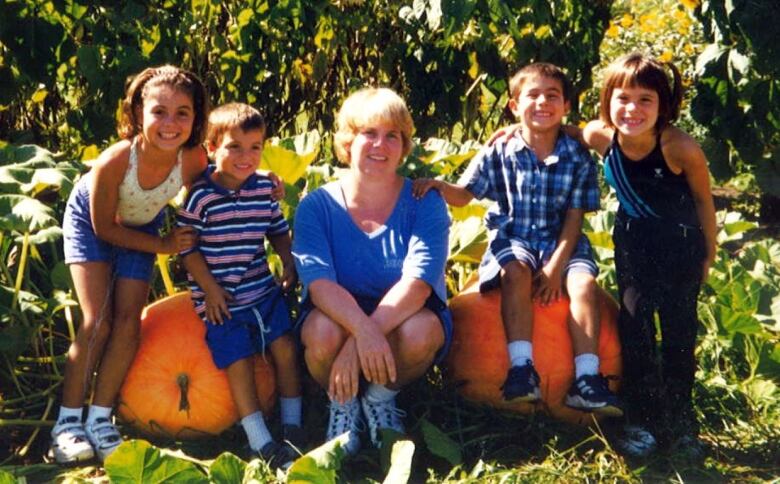
A family affair
We were, in many ways,a typical familygrowing up.
Theeldest, I was alwaysdetail-oriented,quiet and introverted, but definitely the boss at home. Barb, the second child, was silly, outgoing and had a constant,unquenchablehappiness abouther.
My brother Lee, third in line, was a wild child, who you would often find on top of the fridge orthe piano. Kenny, the baby, was the comedian and a good mix of all of us.
With so many kids, the easiest, cheapest and most effective way for our motherto keep us busy was to throw us in the pool.
Not that we minded: the pool quickly became our second home and bathing suits our habitual attire.
But we also had a love of water inour blood.We had long heard stories of our aunt Anne, who competed in the 1976 Olympics in Montreal, where she won two bronze medals.
Anne also qualified for the 1980 Olympics, but did not attend whenCanada pulled out to protest the Soviet invasion of Afghanistan.
All of us aspired to follow in Anne's wake. And one of us made it.
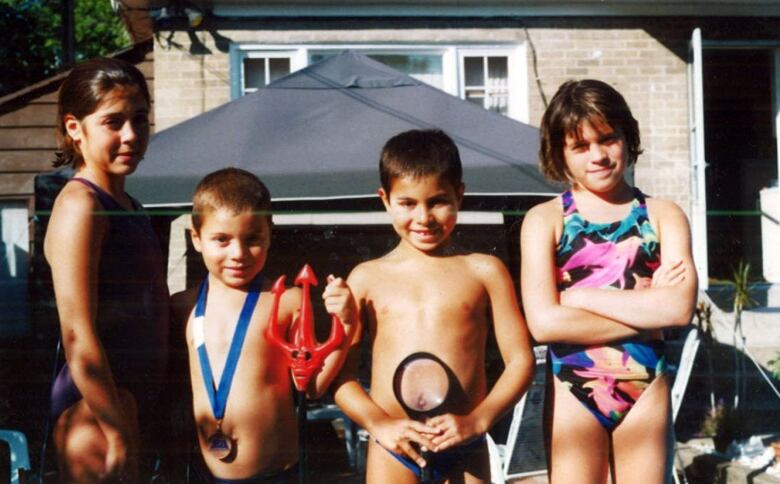
A trip to London
The day after Isat with my sisterin thatWestmountcafe lamenting a disappointing race, she was the first to touch the wall inthe200-metrefreestylequalifier.
Barb was headed to the 2012 Olympics in London.
It's difficult to explain the feelings that come with being anon-Olympian in an Olympic family.
Sure, there isself-pity, self-doubt and envy. But ultimately those emotionsare pushed asidewhen seeing a person you love fight for success.
Their success becomes your success andso does their struggle.
We went as a family to London to cheer on Barb.We painted our faces red and white, and made signs with overpriced cardboard.
She finished 10th overall in the 200-metrefreestyle, and was part of the4x-200-metrerelay team that finished fourth.
Our Olympic sister made us proud.
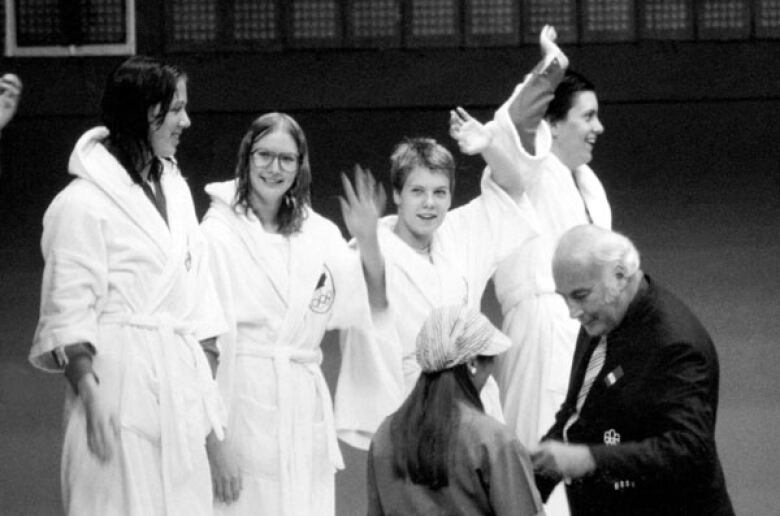
The Olympic fight
In the year after the London Games, Barb kept getting sick. She was diagnosed with Type 1 diabetes in 2014.
At the first, our family didn't really understand what that meant.
We knew people who had Type 1 diabetes; they seemed to have it under control. Intypical Jardin fashion,we told Barbshe shouldn't quit.
Swimming is what we knew her to do, plusshe had always been a fighter.Thiswas just another fight.
Barb was still one of the fastest swimmers in Canada, so shedecided to push aheadfor another year.
She trained as much as she could, raised money for an insulin pumpand taught herself to cope with her new reality.
She managed to make the finals at the Olympics trials in an event she rarely swam, but that swim almost killed her. At the end of the 800-metrefreestyle, Barb pulled herself out of the pool, but she couldn't hold herself up.
And then,a moment of horror that will forever replay in my head in slow-motion: the entire family watched her faint. Her Olympic dream was done, and, in a small way, so was ours.
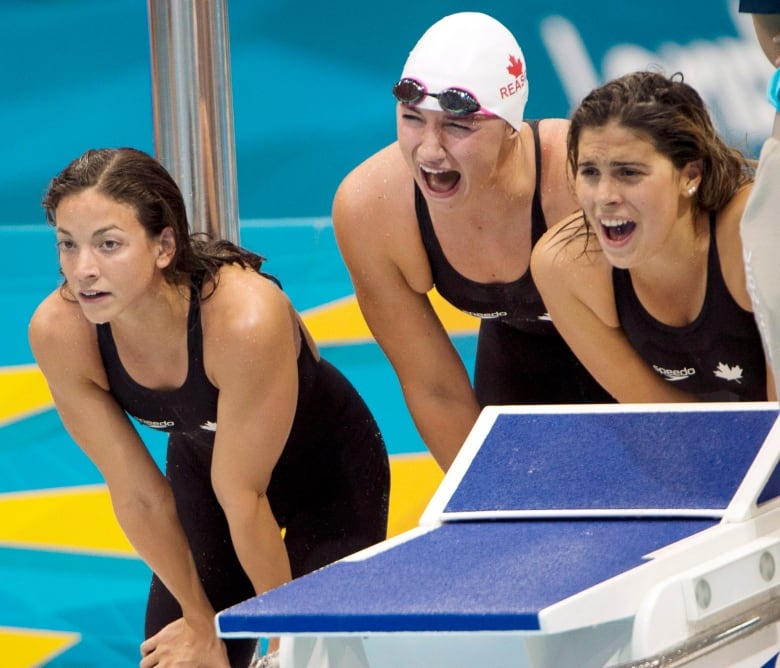
Cheering when the race is over
Since then, I have come to realize whatthe hardest part is about being related to an Olympian.
It is not theself-pity, self-doubt orenvy. That's easy to deal with.
Much harder isrecognizing when your sister doesn't need just another cheerleader in the stands around the pool, but someone cheering them on in life.
So cheering on an Olympian means something different for me.
It's notabout yelling the loudest when theywin; it's about providing support after the race ends and real life begins.












_(720p).jpg)


 OFFICIAL HD MUSIC VIDEO.jpg)
.jpg)



























































































